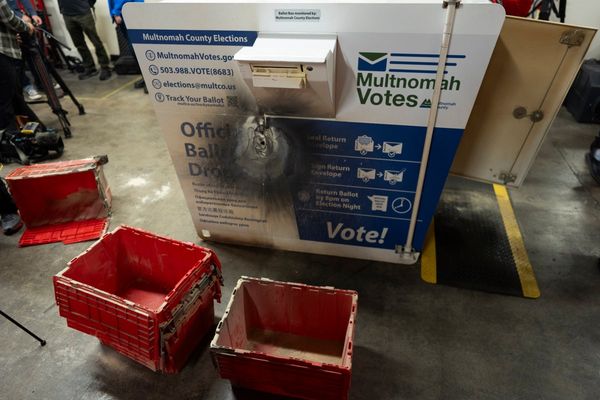
In July, a group of 83 of the world’s richest people calling itself Millionaires for Humanity urged governments to increase taxes on them to help deal with the economic fallout from the COVID-19 pandemic.
Their idea, the latest version of a wealth tax—where the rich are taxed on the assets they already own, rather than their earnings—was received as almost revolutionary. This year, figures from onetime U.S. presidential candidate Bernie Sanders to U.K. Shadow Chancellor Anneliese Dodds have likewise called for the exploration of a wealth tax, making it one of the most popular and seemingly new policy ideas on both sides of the Atlantic.
Although wealth taxes may seem bold and innovative, however, the concept is almost as old as money itself. Indeed, the first known currency was created by King Alyattes in Lydia, modern-day Turkey, in 600 B.C. The ancient Greeks implemented a wealth tax just a century later. Since then, there have been wealth taxes in various countries right through to the present day. The problem is that their implementation has often been unsuccessful, with many countries having moved away from them recently. In fact, in 1990, 12 countries in the Organization for Economic Cooperation and Development had a wealth tax. By 2018, only three still had the tax intact.
In other words, wealth taxes are not quite as revolutionary as some imagine. Nor will they disrupt or end capitalism, as champions like the left-wing commentator Paul Mason and critics like the National Taxpayers Union Foundation allege. But they can reform it. And for a modern wealth tax to be more successful than its predecessors, it must be implemented in a way that gains support from the rich rather than simply incentivizing those with the means to take their capital elsewhere.
A quick look back at history shows that wealth taxes are a very traditional—and some would say intuitive—form of government levies. In ancient Greek times, the eisphora wealth tax was levied on the richest Athenians, particularly during times of war. The tax was applicable to property as well as cash and other liquid assets, and it applied to around 4 percent of ancient Athens’s population, making it a tax for the truly rich, rather than just the relatively comfortable.
The eisphora evolved as ideas of economic justice changed. Originally, the tax was of a fixed amount for all citizens whose wealth was above a certain level, meaning that the rich paid a higher effective tax rate than the super-rich. In 378 B.C., the system was reformed so that the wealthy were taxed proportionally to their wealth, which meant that each person’s assets had to be quantified and declared.
More recently than the ancient Greeks, a wealth tax has been foundational to Islamic practice. The zakat, a yearly religious duty, functions as a 2.5 percent wealth tax on liquid assets. For the observant, zakat is a key part of economic justice. And in some periods of Islamic history, the system has allowed for the absence of other forms of taxation (for example, on income or inheritance) and has led to great strides in poverty eradication. During the reign of Caliph Umar II (A.D. 717-720), for example, zakat collection was successful to the point where rulers in some regions struggled to find eligible recipients, leading to a surplus of zakat funds.
The zakat model is still alive today in nongovernmental form through organizations like the National Zakat Foundation in the United Kingdom and the Zakat Foundation of America, which collect some $6 million and $10 million from British and American Muslims, respectively, each year to give to poorer members of the community.
Modern wealth taxes have often failed because they haven’t learned from their historical equivalents. In 1988, for example, France introduced a new wealth tax of between 1.5 percent and 1.8 percent. The French economist Eric Pichet estimated that, due to capital flight, France ended up losing double the actual tax revenues it gained from the tax before it was abolished in 2017. The problem was that there was little incentive for the rich to keep their money in France. The French experience is not unique. Finland, Ireland, and the Netherlands achieved a similar result with their wealth taxes.
These examples point to an important lesson: The only effective wealth tax is a wealth tax by consent. The eisphora was enacted during times of war, when wealthy Athenians understood that they needed to rally to protect their community. The zakat, meanwhile, is a religious pillar for all Muslims.
Yet today’s wealth taxes, as framed by their left-leaning supporters, appear to be an attack on the wealthy and on capitalism. In remarks in support of such a tax, then-Democratic presidential candidate Elizabeth Warren argued that the “government is working better and better for the billionaires, for the rich, for the well-connected, and worse and worse for everyone else.” If the wealth tax is seen in those terms, it won’t work.
To get to consent, a new wealth tax would need to be framed in a way that preserves capitalism in its most sustainable and meritocratic forms and encourages wealth creation. Indeed, a wealth tax would not tax wealth-creating activities, like investments, but would rather go after wealth hoarding.
By combining some features of eisphora and zakat, modern economies can craft wealth taxes that the richest, as well as the poorest, benefit from. Borrowing from the zakat concept, a wealth tax should not target all assets but should affect only liquid assets above a certain threshold. This would mean that the wealthy are not penalized for their assets per se but are rather encouraged to circulate trapped wealth. In turn, the wealthy would have the incentive to buy goods and services and illiquid assets rather than dumping money into bank accounts. Such a wealth tax would effectively punish the risk-averse and reward the enterprising who are willing to pump their money into the real economy, to the benefit of all.
A wealth tax’s benefit of circulating trapped wealth could be significant. According to estimates by the CIA World Factbook, there is more than $80 trillion in broad money (that is, cash or very liquid cashlike assets) in the world. Much of that is effectively untaxed. If there were a universal levy of, say, 2 percent on this wealth, it would raise $1.6 trillion a year. (According to the International Food Policy Research Institute, it could cost as little as $7 billion a year to eliminate world hunger.) In the United States alone, there was some $18 trillion in broad money in 2018, approximately 70 percent of which was held by the wealthiest 10 percent of Americans. Assuming only the rich were taxed at 2 percent, that could net the government $250 billion.
To be sure, the real benefit of a wealth tax framed this way is not in the additional money it might raise for governments but in the money it circulates into the economy. For example, if someone is sitting on $2 million in cash and doesn’t invest it, the government could take in $40,000 with a 2 percent tax. But if that same person wants to avoid the tax, the full $2 million could well end up circulating in the economy instead, an outcome that could be 50 times better (as a contribution to GDP) than the $40,000. This increased economic activity would in turn create more opportunities for productive and valuable activity that would fuel tax receipts and job creation—and help alleviate poverty.
The benefits to society could be even more significant if governments incentivize the wealthy to make their investments in areas where that money can deliver the most change. In my experience working with Muslim investors, there is always an uptick in people looking for good investment opportunities around the time of their zakat calculations. With the right direction, more of this capital could go to high-impact areas like biotechnology, infrastructure, climate change, and education technology—all of which will be even more important as the world recovers from the COVID-19 pandemic.
The benefits to the wealthy of this kind of wealth tax could make the system sustainable. It could push those who would have to pay it to find a mildly profitable investment for their cash, making them net winners compared to the status quo. Investments like green bonds, which provide a fixed return for investments into green economy projects, or sukuk, which provide a sharia-compliant investment into core infrastructure, could be good models.
And this brings us back to the question of buy-in. Similar to the eisphora, a successful wealth tax may be framed as a response to an emergency (in this case, the COVID-19 pandemic) to increase support for it. Already, at least 83 of the world’s wealthiest have said they’d sign up. And if given the choice to be taxed or to invest and circulate their wealth in ways that help society recover, many of these wealthy may be even happier to pay up.
If done right, a wealth tax could ensure a form of capitalism where the broadest shoulders carry the tax burden. A wealth tax that learns from its successful predecessors can deliver that.







